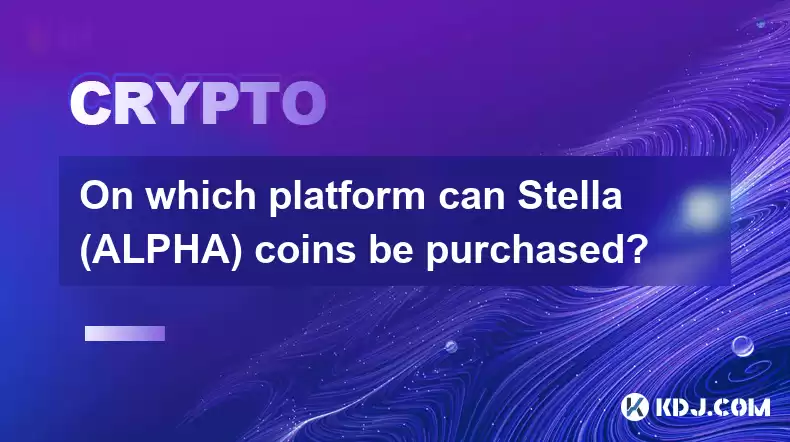-
 Bitcoin
Bitcoin $117600
0.25% -
 Ethereum
Ethereum $4424
0.10% -
 XRP
XRP $3.101
0.50% -
 Tether USDt
Tether USDt $1.001
-0.01% -
 BNB
BNB $836.2
1.26% -
 Solana
Solana $188.8
2.11% -
 USDC
USDC $1.000
0.01% -
 Dogecoin
Dogecoin $0.2301
0.57% -
 TRON
TRON $0.3485
-1.00% -
 Cardano
Cardano $0.9209
-1.34% -
 Hyperliquid
Hyperliquid $46.72
-1.19% -
 Chainlink
Chainlink $22.62
4.84% -
 Stellar
Stellar $0.4275
-0.38% -
 Sui
Sui $3.761
1.91% -
 Bitcoin Cash
Bitcoin Cash $586.7
-0.25% -
 Ethena USDe
Ethena USDe $1.001
0.01% -
 Hedera
Hedera $0.2510
2.06% -
 Avalanche
Avalanche $24.21
2.22% -
 Litecoin
Litecoin $119.7
1.07% -
 Toncoin
Toncoin $3.450
1.06% -
 UNUS SED LEO
UNUS SED LEO $9.411
-0.93% -
 Shiba Inu
Shiba Inu $0.00001298
1.20% -
 Uniswap
Uniswap $10.98
3.25% -
 Polkadot
Polkadot $3.961
2.16% -
 Dai
Dai $1.000
0.00% -
 Bitget Token
Bitget Token $4.642
0.95% -
 Cronos
Cronos $0.1514
0.57% -
 Ethena
Ethena $0.7290
3.78% -
 Monero
Monero $254.1
7.69% -
 Pepe
Pepe $0.00001102
2.47%
On which platform can Stella (ALPHA) coins be purchased?
When considering liquidity and security for trading ALPHA coins, Binance and Gate.io offer high liquidity along with robust security measures, making them reputable choices for purchasing and holding ALPHA.
Dec 26, 2024 at 06:25 am

Key Points:
- Available Cryptocurrency Exchanges: Lists the platforms where ALPHA coins can be purchased.
- Trading Pairs and Liquidity: Examines the trading pairs available for ALPHA and evaluates the liquidity of each market.
- Transaction Fees and Security: Compares the transaction fees and security measures implemented by each exchange.
- Additional Features and Considerations: Discusses special features and factors to consider when choosing an exchange for purchasing ALPHA coins.
Available Cryptocurrency Exchanges:
1. Binance
- Binance is the largest cryptocurrency exchange by trading volume, providing access to a wide range of digital assets including ALPHA.
- Trading Pairs: ALPHA/USDT, ALPHA/BUSD
- Liquidity: High liquidity with substantial daily trading volume.
- Transaction Fees: 0.1% taker fee, 0.1% maker fee.
- Security: Two-factor authentication, address whitelisting, and cold storage protocols.
2. Gate.io
- Gate.io is another reputable exchange with a long-standing presence in the cryptocurrency industry.
- Trading Pairs: ALPHA/USDT, ALPHA/ETH
- Liquidity: Moderate liquidity with sufficient trading volume for active traders.
- Transaction Fees: 0.2% taker fee, 0.15% maker fee.
- Security: Multi-factor authentication, Know Your Customer (KYC) verification, and enhanced security measures.
3. ByBit
- ByBit is a specialized derivatives exchange offering leveraged trading options for cryptocurrencies.
- Trading Pairs: ALPHA/USDT (perpetual futures)
- Liquidity: High liquidity due to its focus on derivatives trading.
- Transaction Fees: 0.01% taker fee, 0.02% maker fee for perpetual futures.
- Security: Anti-money laundering (AML) and anti-terrorism financing (ATF) compliance measures, cold storage.
4. KuCoin
- KuCoin is a popular cryptocurrency exchange known for its support of various altcoins and new digital assets.
- Trading Pairs: ALPHA/USDT, ALPHA/ETH
- Liquidity: Moderate liquidity with active trading volume.
- Transaction Fees: 0.1% taker fee, 0.05% maker fee.
- Security: Two-factor authentication, SMS verification, and SSL encryption.
Trading Pairs and Liquidity:
- Binance offers ALPHA trading pairs against the stablecoin USDT and the utility token BUSD, providing high liquidity and stable market conditions.
- Gate.io's ALPHA/USDT and ALPHA/ETH pairs have moderate liquidity, but still sufficient to support active trading needs.
- ByBit primarily offers ALPHA perpetual futures against USDT, which provides leverage options but requires traders to manage risk exposure.
- KuCoin supports both ALPHA/USDT and ALPHA/ETH trading pairs with moderate liquidity, catering to a broader range of traders.
Transaction Fees and Security:
- Binance and KuCoin offer competitive transaction fees of 0.1% for takers and makers, while Gate.io's slightly higher fees remain comparable.
- ByBit's fees are tailored towards derivatives trading, with lower fees for makers.
- In terms of security, Binance and Gate.io have well-established security protocols and a strong track record of safeguarding user funds.
- ByBit and KuCoin prioritize security through enhanced anti-money laundering measures and compliance requirements.
Additional Features and Considerations:
- Binance provides a comprehensive suite of features such as margin trading, spot markets, and staking options.
- Gate.io offers a beginner-friendly platform with educational resources and a simplified user interface.
- ByBit specializes in derivatives trading, catering to experienced traders and sophisticated financial strategies.
- KuCoin supports a wide range of altcoins and features a user-friendly mobile application.
FAQs:
- What is the best exchange to buy ALPHA coins?
The best exchange depends on individual needs and preferences. Binance is suitable for high liquidity, low fees, and a broad range of features. Gate.io is a solid option for altcoin support and security. ByBit excels in derivatives trading. KuCoin offers a user-friendly platform and supports multiple trading pairs.
- Is it safe to buy ALPHA coins on any exchange?
Researching the reputation and security measures of each exchange is crucial. Use reputable platforms like Binance, Gate.io, ByBit, and KuCoin that have strong track records and implement industry-standard security protocols.
- How much do I need to pay in transaction fees?
Transaction fees vary across exchanges. Binance and KuCoin charge 0.1%, while Gate.io charges slightly higher fees. ByBit's fees are tailored towards derivatives trading. Consider these fees when selecting an exchange.
- What trading pairs are available for ALPHA coins?
The most common trading pairs for ALPHA coins are USDT and ETH. Binance offers both pairs, while Gate.io and KuCoin support ALPHA/USDT and ALPHA/ETH. ByBit primarily offers ALPHA perpetual futures against USDT.
- Is ALPHA a good investment?
The potential of ALPHA coins as an investment depends on various factors such as market demand, project development, and overall market conditions. Conduct thorough research and assess the specific merits of the project before making investment decisions.
Disclaimer:info@kdj.com
The information provided is not trading advice. kdj.com does not assume any responsibility for any investments made based on the information provided in this article. Cryptocurrencies are highly volatile and it is highly recommended that you invest with caution after thorough research!
If you believe that the content used on this website infringes your copyright, please contact us immediately (info@kdj.com) and we will delete it promptly.
- Kazakhstan's Crypto Leap: Bitcoin ETF and Central Asia's Digital Finance Future
- 2025-08-13 12:45:19
- BlockDAG Presale Blazes Past $371M: Fundraising Frenzy Fuels Crypto Sensation
- 2025-08-13 13:05:21
- Meme Coins: Chasing the 2025 Surge – Which Will Moonshot?
- 2025-08-13 10:25:23
- Bitcoin's Wild Ride: Rally, Pullback, and What's Next
- 2025-08-13 10:25:23
- Bitcoin, Bitmax, and Institutional Demand: A New Era of Crypto Investment
- 2025-08-13 10:45:12
- Solana, ROAM, and Airdrops: What's the Buzz in 2025?
- 2025-08-13 11:35:13
Related knowledge

How to purchase Aragon (ANT)?
Aug 09,2025 at 11:56pm
Understanding Aragon (ANT) and Its PurposeAragon (ANT) is a decentralized governance token that powers the Aragon Network, a platform built on the Eth...

Where to trade Band Protocol (BAND)?
Aug 10,2025 at 11:36pm
Understanding the Role of Private Keys in Cryptocurrency WalletsIn the world of cryptocurrency, a private key is one of the most critical components o...

What is the most secure way to buy Ocean Protocol (OCEAN)?
Aug 10,2025 at 01:01pm
Understanding Ocean Protocol (OCEAN) and Its EcosystemOcean Protocol (OCEAN) is a decentralized data exchange platform built on blockchain technology,...

How to invest in Kyber Network Crystal v2 (KNC)?
Aug 12,2025 at 05:21pm
Understanding Kyber Network Crystal v2 (KNC)Kyber Network is a decentralized liquidity hub built on the Ethereum blockchain that enables instant token...

Where can I buy UMA (UMA)?
Aug 07,2025 at 06:42pm
Understanding UMA and Its Role in Decentralized FinanceUMA (Universal Market Access) is an Ethereum-based decentralized finance (DeFi) protocol design...

How to sell my Ren (REN) tokens?
Aug 13,2025 at 11:35am
Understanding REN Tokens and Their Role in Decentralized FinanceREN is an ERC-20 token that powers the Ren protocol, a decentralized interoperability ...

How to purchase Aragon (ANT)?
Aug 09,2025 at 11:56pm
Understanding Aragon (ANT) and Its PurposeAragon (ANT) is a decentralized governance token that powers the Aragon Network, a platform built on the Eth...

Where to trade Band Protocol (BAND)?
Aug 10,2025 at 11:36pm
Understanding the Role of Private Keys in Cryptocurrency WalletsIn the world of cryptocurrency, a private key is one of the most critical components o...

What is the most secure way to buy Ocean Protocol (OCEAN)?
Aug 10,2025 at 01:01pm
Understanding Ocean Protocol (OCEAN) and Its EcosystemOcean Protocol (OCEAN) is a decentralized data exchange platform built on blockchain technology,...

How to invest in Kyber Network Crystal v2 (KNC)?
Aug 12,2025 at 05:21pm
Understanding Kyber Network Crystal v2 (KNC)Kyber Network is a decentralized liquidity hub built on the Ethereum blockchain that enables instant token...

Where can I buy UMA (UMA)?
Aug 07,2025 at 06:42pm
Understanding UMA and Its Role in Decentralized FinanceUMA (Universal Market Access) is an Ethereum-based decentralized finance (DeFi) protocol design...

How to sell my Ren (REN) tokens?
Aug 13,2025 at 11:35am
Understanding REN Tokens and Their Role in Decentralized FinanceREN is an ERC-20 token that powers the Ren protocol, a decentralized interoperability ...
See all articles

























































































